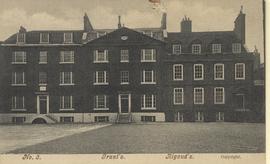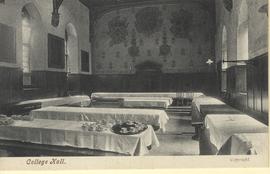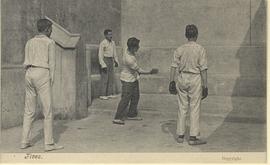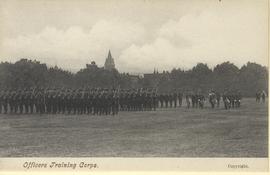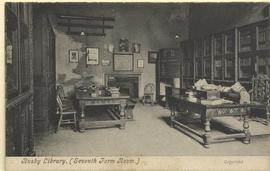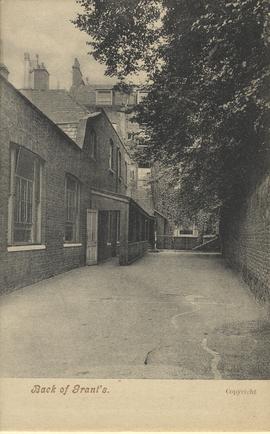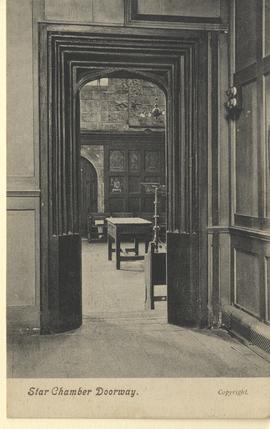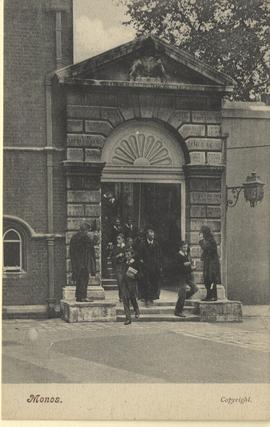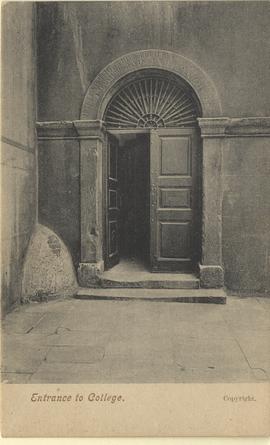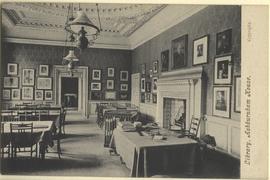- GB 2014 WS-02-POS-01-28
- Item
- c.1911
One copy annotated on reverse by R.S. Chalk, as follows:
'1918-1920
These memories are confined to Rigaud’s, where I was a boarder for 6 terms, Play 1918-Election 1920. The formidable E.L Fox was House Master. There were 60+ boys, 50% being Half-Boarders (not Day Boys!). Boarders thought little of Half-Boarders! I loved my first house dearly.
In picture:
Basement – Changing Room (one bath only!)
First Floor- Hall (i.e. Common Room & Prep Room) accommodating +-50 boys. (Half-Boarders were kept out before 9am and driven out after 5pm. During those hours they had to answer ‘knocks’ on Upper Door when Monitors required a fag. (As other times, the junior Boarder present)
Second Floor:- Big Dorm (Monitors, Underites and the dozen or so senior Boarders). Leave to go ‘up Dorm’ was given once a week only.
Top Floor:- Sick Rooms (one generally used as an ‘overflow’ for Little Dorm). I spent 16 days of my first Term in the End Sick Room suffering from Spanish Flu in the epidemic of 1918 (E.D Harford, the ‘beau ideal’ of a Westminster, and Little Dorm Monitor died in this room on 19.7.1919)
Monitors had the privilege of disporting themselves on the rail-enclosed step outside the Front Door. It was a ‘tannable offence’ for any ‘Hallite’ to stop still on the steps even for a moment.'

